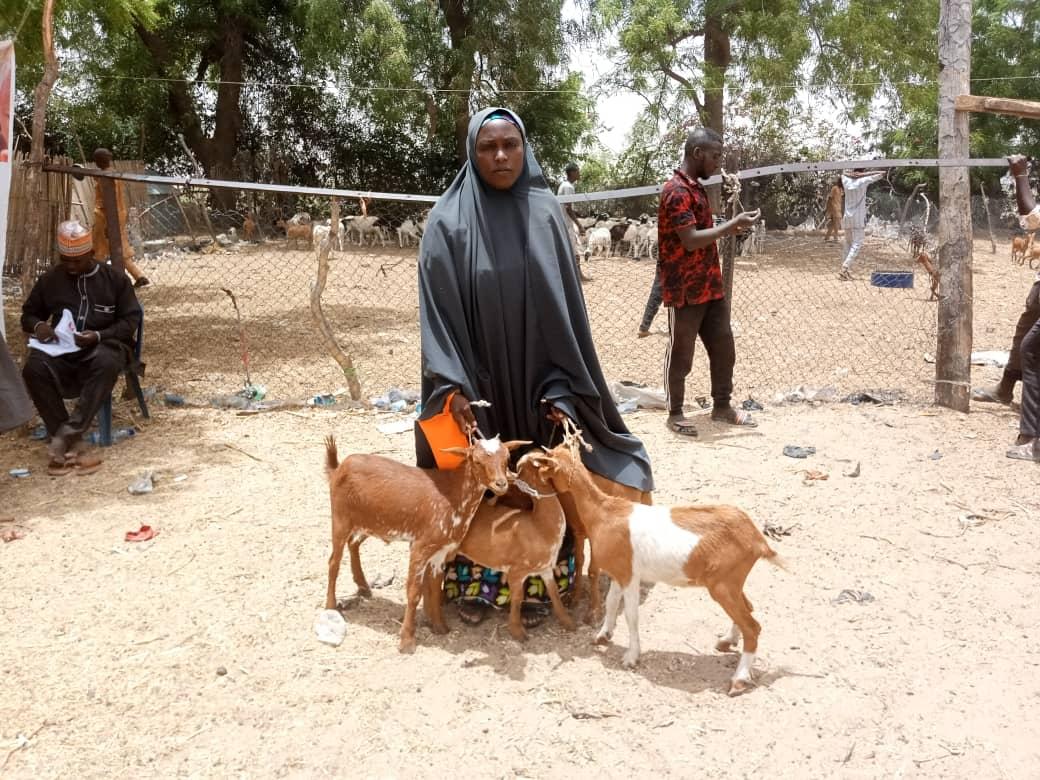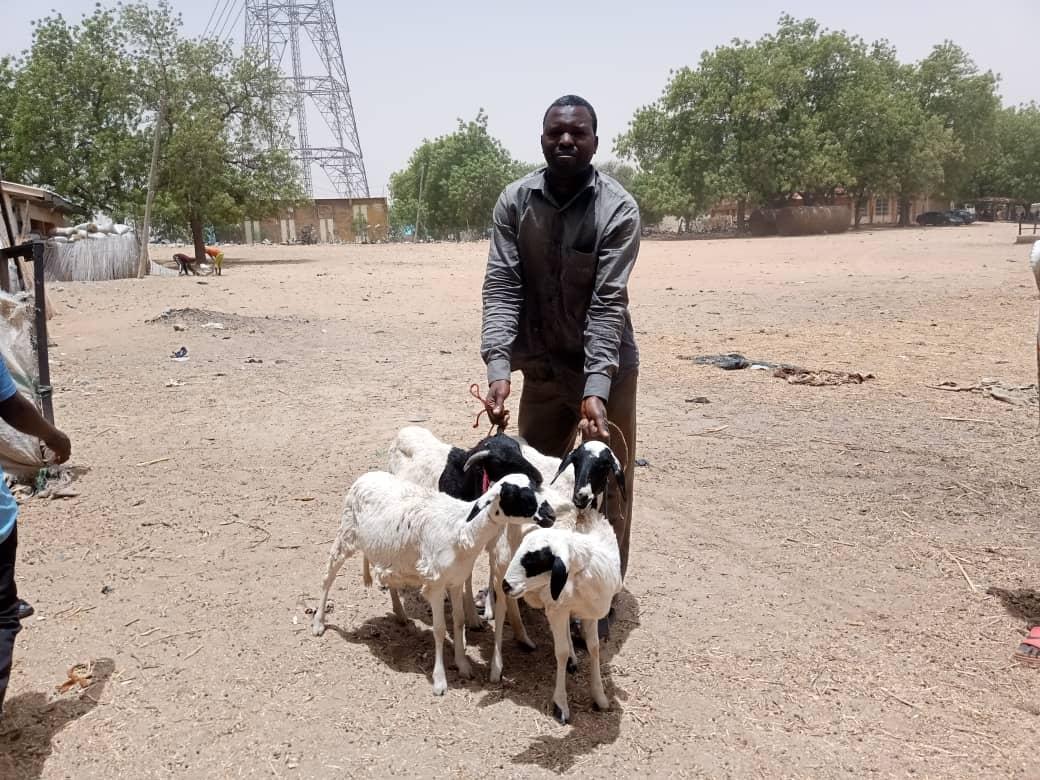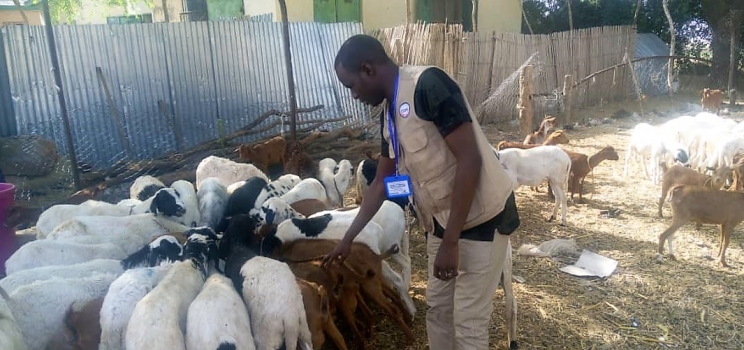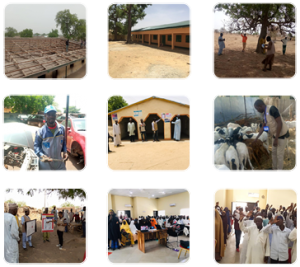In a bid to support conflict affected households and vulnerable host communities in rebuilding their livelihoods, the Centre for community Development and Research Network (CCDRN) has distributed 588 livestock (sheep and goats) to one hundred and forty seven beneficiaries, with support from the United Nations World Food Programme (WFP) under its 2020 Livelihood intervention in Bade LGA, Yobe state.
The over ten year conflict in the Nigerian Northeast has severely affect people’s livelihoods through loss of assets, including livestock. In many parts of the northeast, livestock are an integral part of the household economy, and contribute significantly to family subsistence, livelihood and well-being. Many Internally Displaced families affected by the violence occasioned by the activities of Non State Armed groups had their means of livelihood disrupted with no support system.
In response, WFP has been reaching out to these affected populations through a far reaching intervention being implemented by CCDRN across targeted communities in Bade, a local government in Yobe state. This intervention which is in its second phase has been changing lives positively, supporting resilience building and providing a means of livelihood.

A female beneficiary pose with goats she received from CCDRN thanks to WFP in Bade, Yobe state
Prior to the insurgency, livestock was a key means of livelihood in the affected communities. It plays very important economic and socio-cultural roles for the wellbeing of rural households, such as food supply, source of income, asset saving, source of employment, soil fertility, agricultural diversification and sustainable agricultural production.

A beneficiary displays 4 sheep received from CCDRN thanks to WFP in Bade

